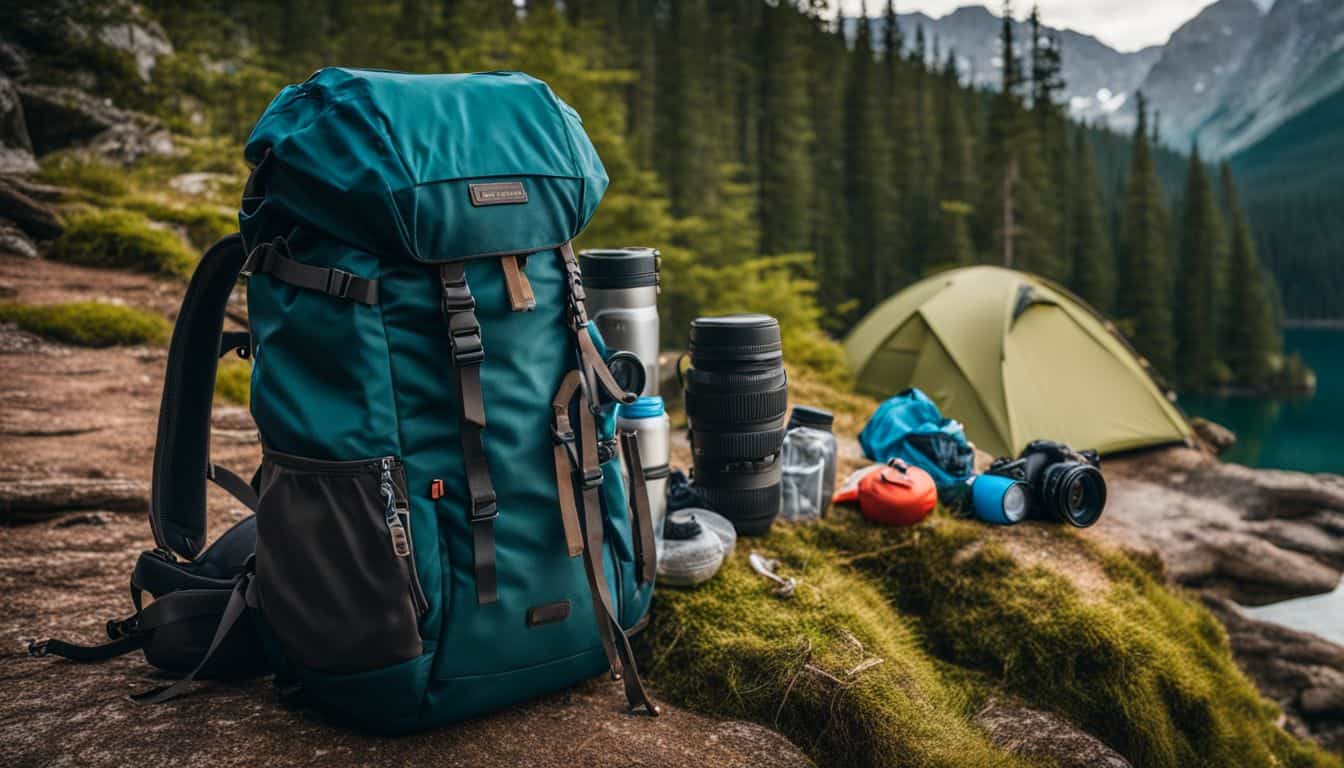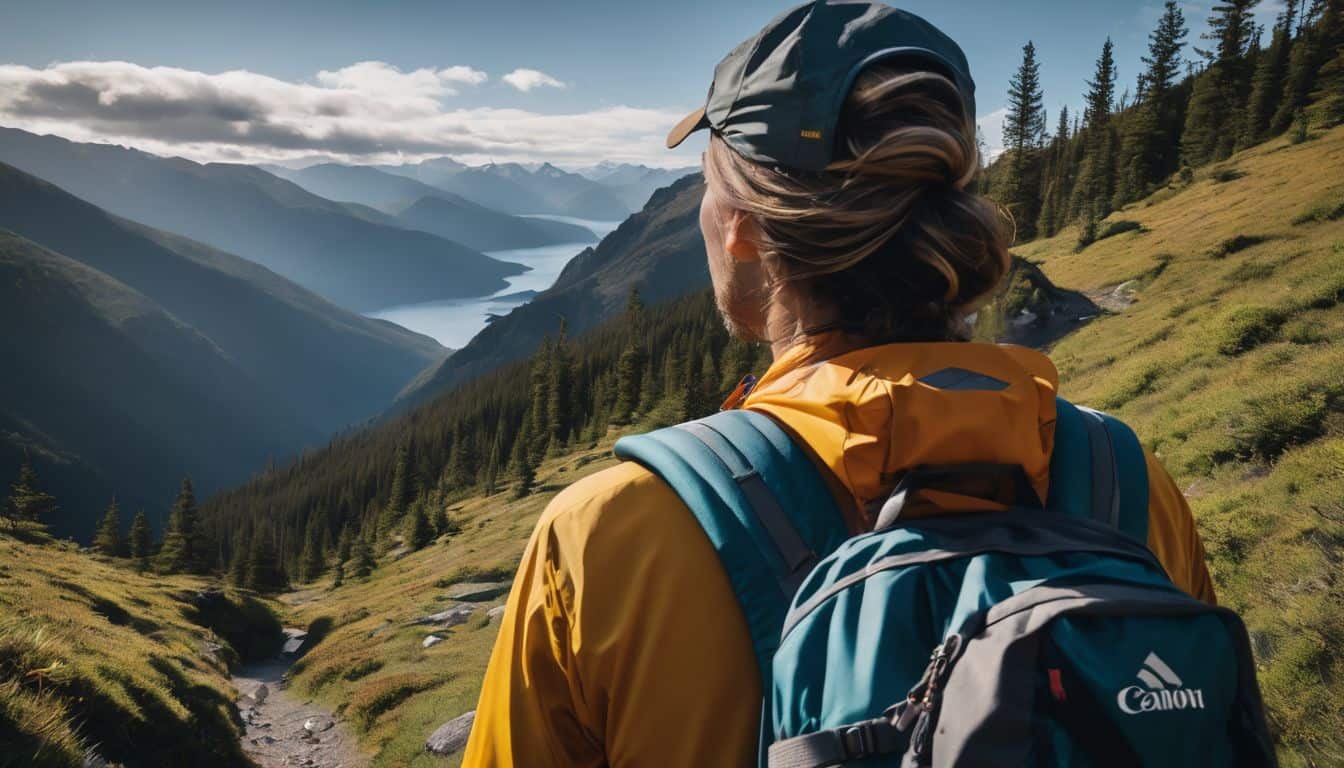Eco-friendly backpacking is becoming increasingly important as more people seek to explore nature while minimizing their environmental impact. This guide will help you embark on sustainable adventures that preserve the beauty of our natural world for future generations.
Sustainable Gear Choices
Choosing the right gear is crucial for eco-friendly backpacking. Opt for backpacks and tents made from recycled materials or sustainable fabrics. Invest in reusable water bottles and filtration systems to reduce plastic waste. Solar-powered or rechargeable devices can help minimize battery waste. Don’t forget to pack biodegradable toiletries and reef-safe sunscreen to protect aquatic ecosystems.
When planning your trip, consider these lightweight backpacking summer packing tips to ensure you’re not overloading your pack with unnecessary items.
When selecting gear, look for companies that prioritize sustainability in their manufacturing processes. Many brands now offer backpacks made from recycled plastic bottles or organic cotton. For tents, consider those made with PFC-free waterproofing and recycled materials. Invest in a high-quality, durable water filter or purification system to eliminate the need for bottled water. Solar chargers or hand-crank devices can keep your electronics powered without relying on disposable batteries. By choosing gear thoughtfully, you can significantly reduce your environmental impact before even setting foot on the trail.

Responsible Meal Planning
Plan your meals carefully to reduce packaging waste. Choose local and organic food options when possible, and prepare meals in advance using reusable containers. Bring reusable utensils and avoid single-use plastics. Proper food storage is essential to prevent wildlife interactions and maintain the natural balance of the ecosystem.
Meal planning goes beyond just packing food; it’s about minimizing waste and respecting the environment. Consider dehydrating your own meals to reduce weight and packaging. When buying food, choose items with minimal packaging or transfer them to reusable containers before your trip. Bring a reusable cloth bag for collecting trash as you hike. For food storage, use bear canisters or hang food properly to avoid attracting wildlife. By planning carefully, you can enjoy delicious meals while leaving no trace of your presence in nature.
Leave No Trace Principles
Adhering to Leave No Trace principles is fundamental to eco-friendly backpacking. Plan ahead, stay on designated trails, dispose of waste properly, and leave natural objects undisturbed. Minimize campfire impacts and respect wildlife by observing from a distance. Always be considerate of other visitors to preserve the wilderness experience for all.
The Leave No Trace principles are the cornerstone of responsible outdoor recreation. Planning ahead means researching your destination, understanding regulations, and preparing for various weather conditions to avoid unnecessary impact on the environment. When hiking, stick to established trails to prevent erosion and damage to vegetation. Properly disposing of waste includes packing out all trash, using designated restroom facilities when available, and burying human waste at least 200 feet from water sources. Resist the urge to take “souvenirs” from nature or to feed wildlife, as these actions can disrupt delicate ecosystems. By following these principles, we ensure that the natural spaces we enjoy remain pristine for future generations of backpackers.
Eco-Friendly Transportation
Consider using public transport or carpooling to reach your destination. If driving is necessary, look into carbon offset programs to mitigate your environmental impact. These small choices can significantly reduce your carbon footprint. Research shuttle services or public transportation options that cater to hikers and backpackers in popular outdoor areas.
If you must drive, ensure your vehicle is well-maintained for optimal fuel efficiency. Consider renting a hybrid or electric vehicle for your trip. When flying is unavoidable, choose direct flights when possible and support airlines with strong sustainability initiatives. Remember, the journey to your backpacking destination is part of your overall environmental impact, so make thoughtful choices.
Sustainable Camping Practices
Select eco-friendly campsites that have minimal impact on the surrounding environment. Practice water conservation techniques and manage fires responsibly. Always properly dispose of waste and recycle whenever possible. Choose established campsites to avoid damaging new areas. When wild camping, set up on durable surfaces and avoid fragile vegetation.
Conserve water by using biodegradable soap and washing dishes away from water sources. If campfires are allowed, use existing fire rings and keep fires small. Collect only dead and downed wood, and fully extinguish fires before leaving. Carry out all trash, including food scraps, and use biodegradable toilet paper. These practices help preserve the natural beauty of your camping area for future visitors.
Supporting Local Communities
Engage with and support local communities during your backpacking trips. Purchase supplies from local businesses and respect local cultures and customs. Consider participating in community-based ecotourism initiatives to contribute positively to the areas you visit. Buy locally-produced food and gear when possible, which not only supports the local economy but also reduces transportation-related emissions.
Learn about the history and culture of the areas you’re visiting. Respect local customs and dress codes, especially in rural or traditional communities. Seek out authentic, locally-run experiences rather than large commercial tours. Your interactions and economic contributions can help foster positive relationships between backpackers and local communities.
For more insights on respecting local cultures while backpacking, check out this guide on backpacking and cultural etiquette.

Education and Awareness
Take time to learn about the ecosystems you’re exploring. Share eco-friendly practices with fellow backpackers and consider participating in trail maintenance or conservation efforts. Your knowledge and actions can inspire others to adopt sustainable backpacking practices.
Before your trip, research the flora, fauna, and geological features of your destination. Understanding the ecosystem can enhance your appreciation and help you make more informed decisions about your impact. Share your knowledge with other backpackers you meet on the trail. Consider joining or organizing a trail clean-up event. Use social media responsibly to share your eco-friendly practices and inspire others. Remember, education is a powerful tool in promoting sustainable backpacking and conservation efforts.
Conclusion
Eco-friendly backpacking is not just about minimizing our impact; it’s about fostering a deep connection with nature and ensuring its preservation for future adventurers. By adopting these sustainable practices, we can enjoy the beauty of the outdoors responsibly.
For those looking to explore off-the-beaten-path locations, consider these underrated backpacking destinations that offer unique experiences while often facing less environmental pressure from tourism.
Remember, every small action counts. By embracing eco-friendly backpacking, we can all contribute to the conservation of our planet’s natural wonders while enjoying unforgettable adventures in the great outdoors.

Leave a Reply